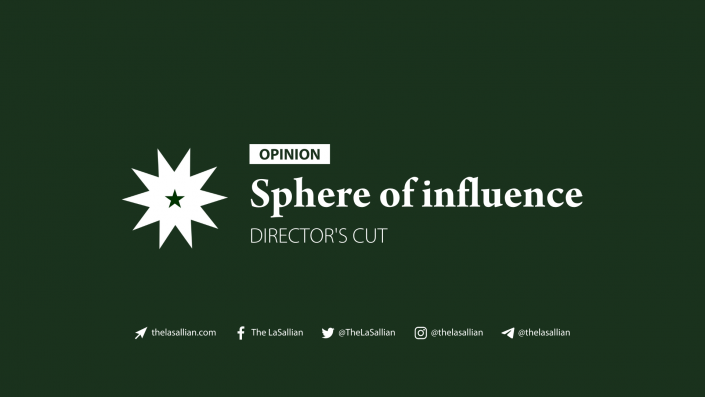Whenever I am bored and would desire an escape from the world’s stressful reality, I would open my phone, go to YouTube, and click on the vlogs from my favorite YouTube or TikTok channels like Pamela Swing, Benedict Cua, Jaime Onod, and many more. Within three to fifteen minutes, you would see me giggling—even sometimes snorting—because of the funny videos, enticing me more to watch until I suddenly look at the clock and notice that I have been ogling at my screen for the past hours.

But things have changed for the vlogging world especially since the onset of the pandemic up to the previous elections. I saw a lot of vloggers and influencers using their platforms to share historical anecdotes, news, and political stances. They felt the need to engage and they acted upon it.
However, on these sites, I would also always come across channels with videos having titles in all caps, with clickbaity thumbnails, with their shocked faces, and with hundreds—if not thousands—of views. So naturally, as the Marites that I am, I would click on the video out of curiosity. But after watching them, I realized that it is all just full of tall tales and fake information.
However, these will be the same people who will be included in Malacañang press briefings to report and to share information on current events alongside trained journalists, as per president-elect Bongbong Marcos’ spokesperson Vic Rodriguez.
This is nothing short of an insult to journalists who have trained to be professionals in their jobs—professionals who uphold and fight for the truthful, ethical, and responsible practice of journalism. Disseminating information that may mean life or death is not child’s play, nor is the chronicling of history, which is something news also handles.
However, entrusting vloggers to deliver news is not something new. Back in 2017, the idea of adult vloggers and influencers with at least 5,000 social media followers would be allowed and invited to cover Duterte-related events.
Perhaps the government is trying to get that massive reach on social media that vloggers and influencers can achieve. Their words and information can easily become trending in as fast as five minutes, especially on TikTok. Creators like Jam Magno would create inaccurate or totally false issues that would set the online world on fire. This is dangerous, as despite efforts of fact-checking, many still take the words of the likes of Magno as the truth.
This is why, if the government would consider vloggers and influencers to be equals of seasoned journalists and news writers, there will be complications.
News quality will be questionable. Unlike journalists, vloggers can manipulate the information they put out for the sake of confirmation bias. Thus, there will be no certainty that the information to be relayed will leave prejudices and skewing out of the picture. It is terrifying for me how informally trained content creators will be given almost complete freedom to publish anything from unverified information to made-up stories while still being dubbed as credible. Meanwhile, journalists are continuously being discredited and questioned for their fact-checked, well-researched reports.
Especially nowadays where a number of vloggers keep sharing so-called facts, truths, and even news—especially during the aftermath of the recently concluded elections—there needs to be a conscious effort to watch out for possible skewing of information. This is why vloggers and influencers have to be reminded that they not only have a responsibility to themselves but also to their audiences. Many people look up to them and even idolize them.
This is why the government, especially the education sector, should also strengthen the media and information literacy courses in schools. Bringing the subject to junior high school level as well, instead of just it being in senior high school should also be considered. Local government units should also have more accessible cybersecurity desks or digital versions of them so that people can easily report spreaders of fake news.
Everyone, to some degree, has influence over people. Our influence could be on one person, a small unit like your family, or your colleagues and peers. Thus, we also have responsibility for the information we relay to them. For the cycle of fake news to end, everyone must do their part.
